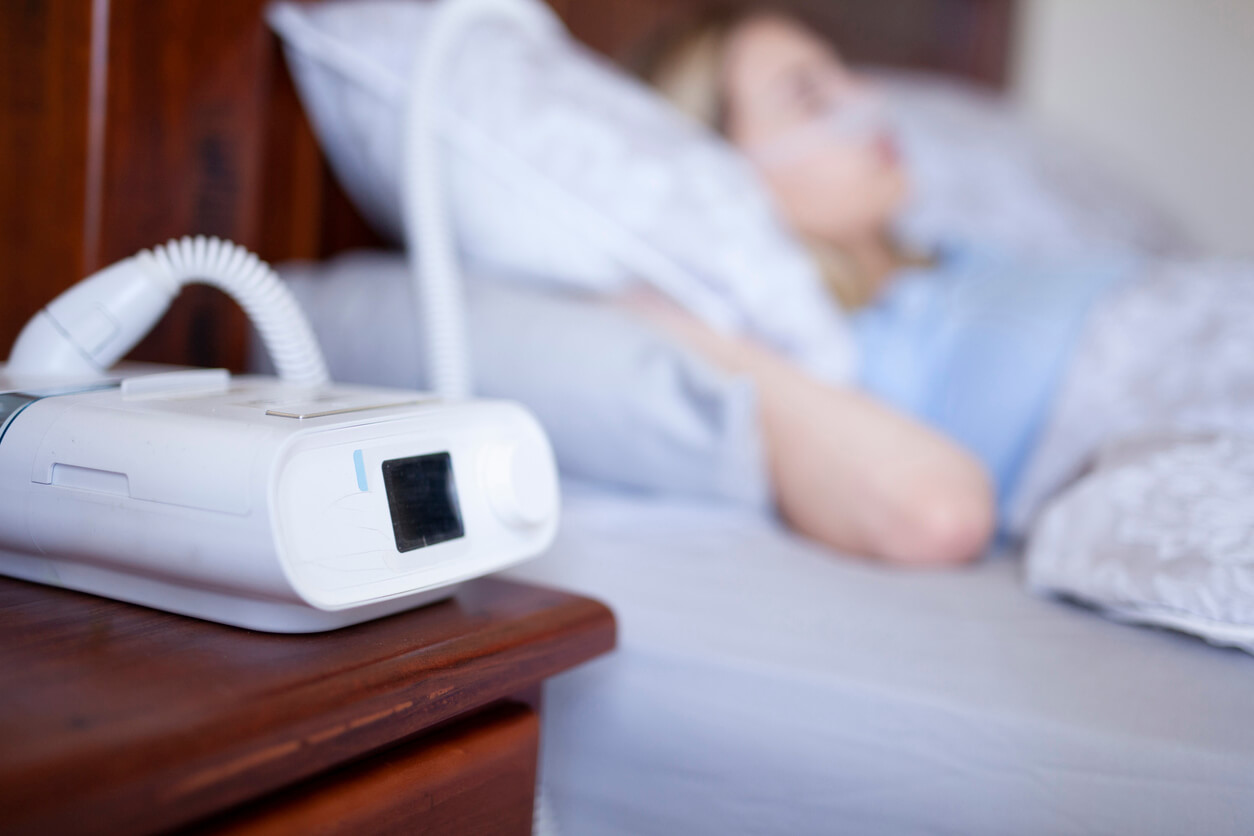New Foam in Recalled Philips CPAP Machines May Still Pose Safety Risk
Editors carefully fact-check all Drugwatch.com content for accuracy and quality.
Drugwatch.com has a stringent fact-checking process. It starts with our strict sourcing guidelines.
We only gather information from credible sources. This includes peer-reviewed medical journals, reputable media outlets, government reports, court records and interviews with qualified experts.

Months after Philips began replacing potentially toxic polyester-based polyurethane (PER-PUR) foam in its recalled CPAP, BiPAP and ventilator machines, the FDA flagged another safety issue with the replacement foam.
In September 2021, Philips began replacing foam in about 15 million devices that it originally recalled in June 2021. The PE-PUR foam in recalled devices could degrade and emit toxic particles and gases called volatile organic compounds or VOCs. Ingested or inhaled particles or VOCs can cause CPAP side effects including: Breathing problems and irritation to the eyes, throat and nose.
They can also damage the nervous system and other organs. Some may even cause cancer.
Philips chose to replace the PE-PUR foam with a silicone-based foam, and the FDA originally approved the plan based on testing provided by Philips. But the FDA now says that information discovered during an inspection of Philips’ manufacturing facility revealed that the silicone foam used in a device marketed outside the U.S. failed a safety test for volatile organic compounds or VOCs.
“The FDA is aware that patients have already received devices with silicone-based foam as part of the repair and replace program. At this time, the agency does not have sufficient information to conclude whether the silicone-based foam being used in the repaired devices poses any risk to patients in the U.S.,” the agency said in its recall update.
The agency ordered Philips to conduct independent testing on the silicone foam and will inform the public of the results when they are available. In the meantime, people who already received replacement devices from Philips shouldn’t stop using them because stopping treatment may be more harmful, the FDA said.
Philips May Have Known for Years About PE-PUR Foam Problems
In addition to discovering new information about the potential risk of Philips’ replacement silicone foam, FDA investigator Katelyn A. Staub-Zamperini also noted several “observations” in an inspection closeout report, or FDA Form 483, dated Nov. 9, 2021.
The company did not have documented risk analysis to support why some PE-PUR foam-containing devices were recalled and others weren’t, Staub-Zamperini said. She also noted that Philips was aware as far back as 2015 that foam degradation occurred in its Trilogy ventilator products but the company didn’t perform risk analysis or health hazard evaluations.
This new information could lead to more litigation woes for the CPAP maker.
Philips is currently facing individual CPAP lawsuits filed by people who say they developed serious health problems from their recalled machines. In addition, Philips CPAP owners have filed several class action lawsuits demanding financial damages.
Brendan McDonough, an attorney overseeing Philips CPAP litigation with national law firm Weitz & Luxenberg, told Drugwatch that the FDA investigation shows Philips has known about the dangers of PE-PUR for years. In spite of the company’s own internal investigation showing degraded PE-PUR foam products as toxic and potentially carcinogenic, it chose to keep using the foam anyway without warning the public of the risk.
“The FDA’s update reveals Philips was aware no later than 2015 that the polyester-based polyurethane (PE-PUR) foam used in the recalled CPAP, BiPAP, and mechanical ventilator machines has a degradation issue that is dangerous to users,” said Brendan McDonough. “As far back as 2016, the company was studying alternative foams that showed ‘far better resistance’ to the heat and humidity that Philips is now blaming for the degradation of PE-PUR foam. Additionally, the FDA has learned that the silicone-based foam Philips is currently using to ‘remediate’ recalled devices may not be safe for users, either. We look forward to obtaining more information as we seek to hold Philips responsible for our clients’ injuries.”
The FDA has said the inspection closeout report isn’t a final FDA determination of whether Philips is in violation of the Federal Food, Drug, and Cosmetic Act. Before making a decision on its next actions, the FDA will review the company’s response and all the available information.